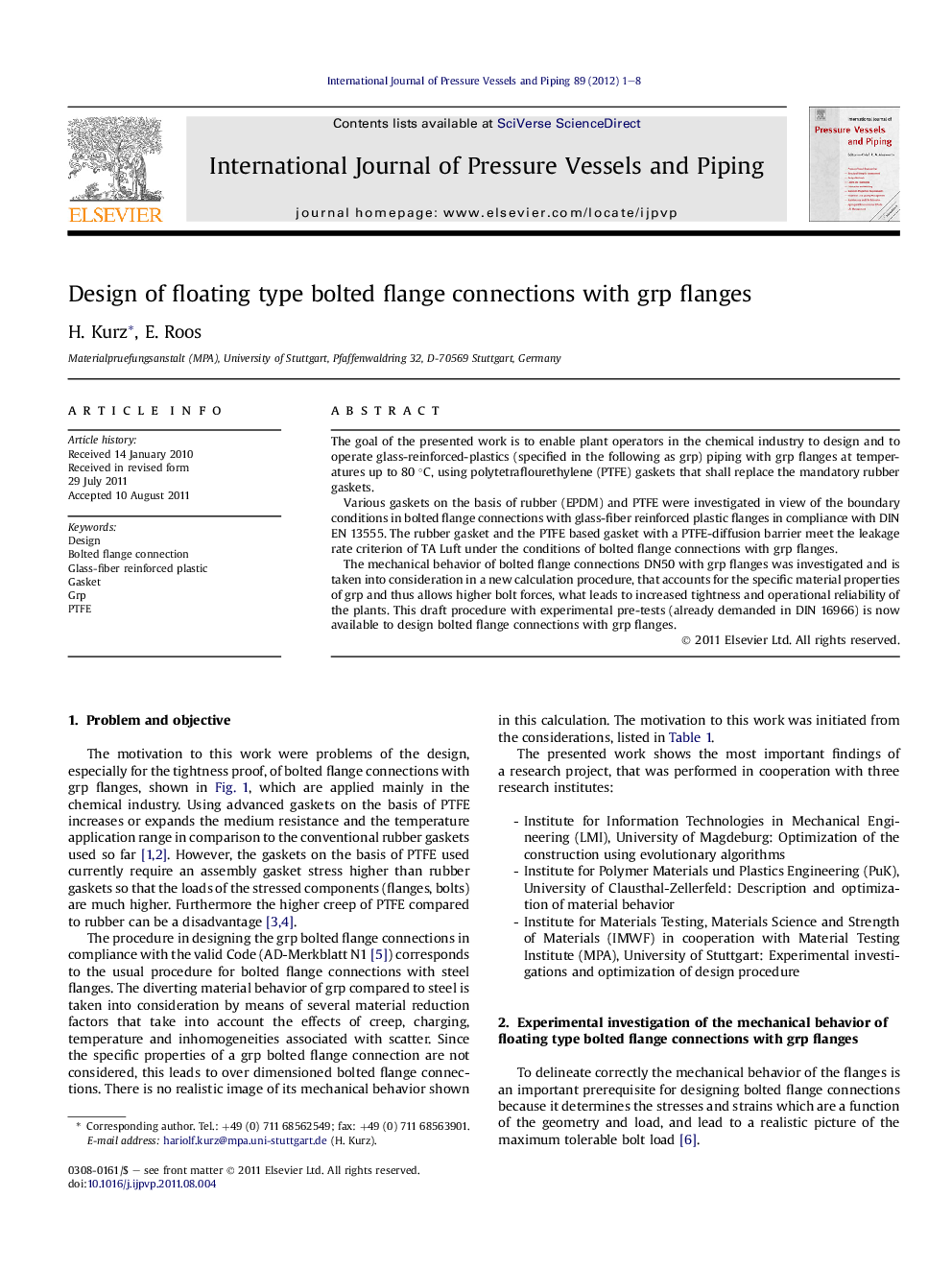| Article ID | Journal | Published Year | Pages | File Type |
|---|---|---|---|---|
| 790752 | International Journal of Pressure Vessels and Piping | 2012 | 8 Pages |
The goal of the presented work is to enable plant operators in the chemical industry to design and to operate glass-reinforced-plastics (specified in the following as grp) piping with grp flanges at temperatures up to 80 °C, using polytetraflourethylene (PTFE) gaskets that shall replace the mandatory rubber gaskets.Various gaskets on the basis of rubber (EPDM) and PTFE were investigated in view of the boundary conditions in bolted flange connections with glass-fiber reinforced plastic flanges in compliance with DIN EN 13555. The rubber gasket and the PTFE based gasket with a PTFE-diffusion barrier meet the leakage rate criterion of TA Luft under the conditions of bolted flange connections with grp flanges.The mechanical behavior of bolted flange connections DN50 with grp flanges was investigated and is taken into consideration in a new calculation procedure, that accounts for the specific material properties of grp and thus allows higher bolt forces, what leads to increased tightness and operational reliability of the plants. This draft procedure with experimental pre-tests (already demanded in DIN 16966) is now available to design bolted flange connections with grp flanges.
► In this study we identify a PTFE-gasket with an acceptable performance in grp flanges. ► The mechanical behavior of grp flanges is examined via experiment and FEM. ► The derivation of a design concept for grp-loose flanges is presented. ► The design concept shows good agreement with the FE simulation and experiment. ► Applying the design concept leads to an increase in service reliability.
